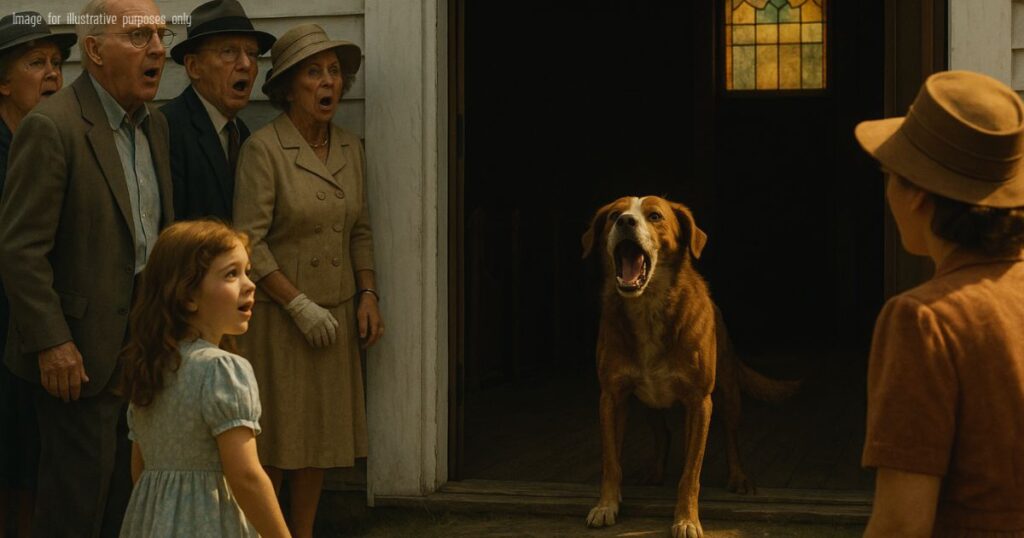Part 8: The Things We Leave Behind
Late Summer 1978 – McCall, Alabama
The sunflower bloomed for ten days.
Tall and stubborn, it grew out of a crack between stone and soil, right where Mercy had once sat during a thunderstorm, soaked and staring at Elsie’s window.
No one planted it.
But no one touched it either.
People stepped around it like a monument, lowered their voices near it like they were entering a library of memory.
And when it finally wilted, the petals dry and curling like yellow parchment, Elsie gathered them in her hand and laid them on the pew.
Just above the harmonica.
Just beneath the photograph.
Just under the weight of the names no one said out loud.
McCall had started to change.
Not in loud, sweeping ways.
But in smaller, truer ones.
Old feuds faded.
The Simms brothers, who hadn’t spoken since their daddy’s funeral, sat side by side in Mercy’s pew one morning without saying a word. Just breathing the same air, chewing on the same silence, daring to not be angry anymore.
A widow began bringing her husband’s dog to the church steps each Sunday—never inside, just close enough to hear the hymns. She said it helped with the ache.
Even Sheriff Boudreaux started coming early to lay a biscuit on the pew cushion.
Said it was “for insurance.”
No one argued.
Then came the morning that broke the stillness.
A boy had gone missing.
Eight years old. Just vanished from his front yard after riding his bike up and down the gravel lane behind the church.
McCall locked up tight.
Men in pickup trucks formed search lines.
Mothers clutched hands that weren’t missing.
Fathers called names into woods that swallowed sound.
And Elsie?
She sat on Mercy’s pew and cried into the collar.
That night, she dreamed of Mercy for the first time in weeks.
Not running.
Not barking.
Just standing.
At the edge of a field lit only by moonlight.
Looking back.
As if waiting.
As if saying: Come see.
Elsie woke before dawn.
Pulled on her boots.
Tucked the collar into her coat pocket.
She didn’t tell her mama.
She didn’t leave a note.
She just went—to the woods behind the church, following the path Mercy had always taken when he disappeared after services.
The trees whispered old secrets as she walked.
She heard wind, owls, and something else.
Something softer.
Like breathing.
She found the boy in a hollow not far from the creek.
Curled beneath a slanted pine.
Scared. Shivering. Clutching something.
A biscuit.
Hard. Cracked.
Wrapped in a square of torn newspaper.
The kind Hank left on Mercy’s pew every Sunday.
He looked up at her with wide eyes.
“I followed the dog,” he whispered.
“Brown dog?”
He nodded.
“One ear down,” he said. “Stripe on his nose.”
Elsie smiled through tears. “Yeah. That’s him.”
The boy came home to headlines and hot soup and tighter embraces.
No one questioned the dog.
No one asked why a child would follow a ghost.
McCall didn’t need proof anymore.
They had a pew.
They had the stories it held.
They had Mercy.
That Sunday, the congregation placed a single candle on the pew.
Lit it during the final hymn.
Let the flame flicker as the wind shifted through the high windows.
Elsie held her mother’s hand and whispered,
“Still working. Still watching.”
Jewel squeezed back. “Still ours.”
When the candle burned low, its wax pooled on the cushion like a soft white pawprint.
They never cleaned it.
Never even tried.
Some things deserve to stay.


